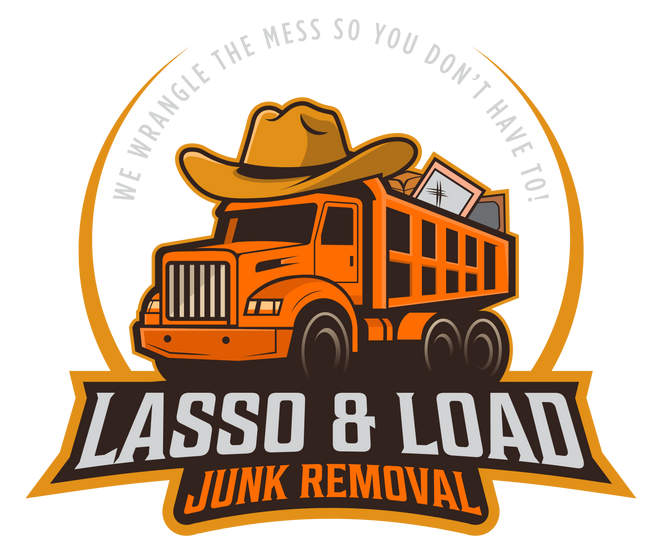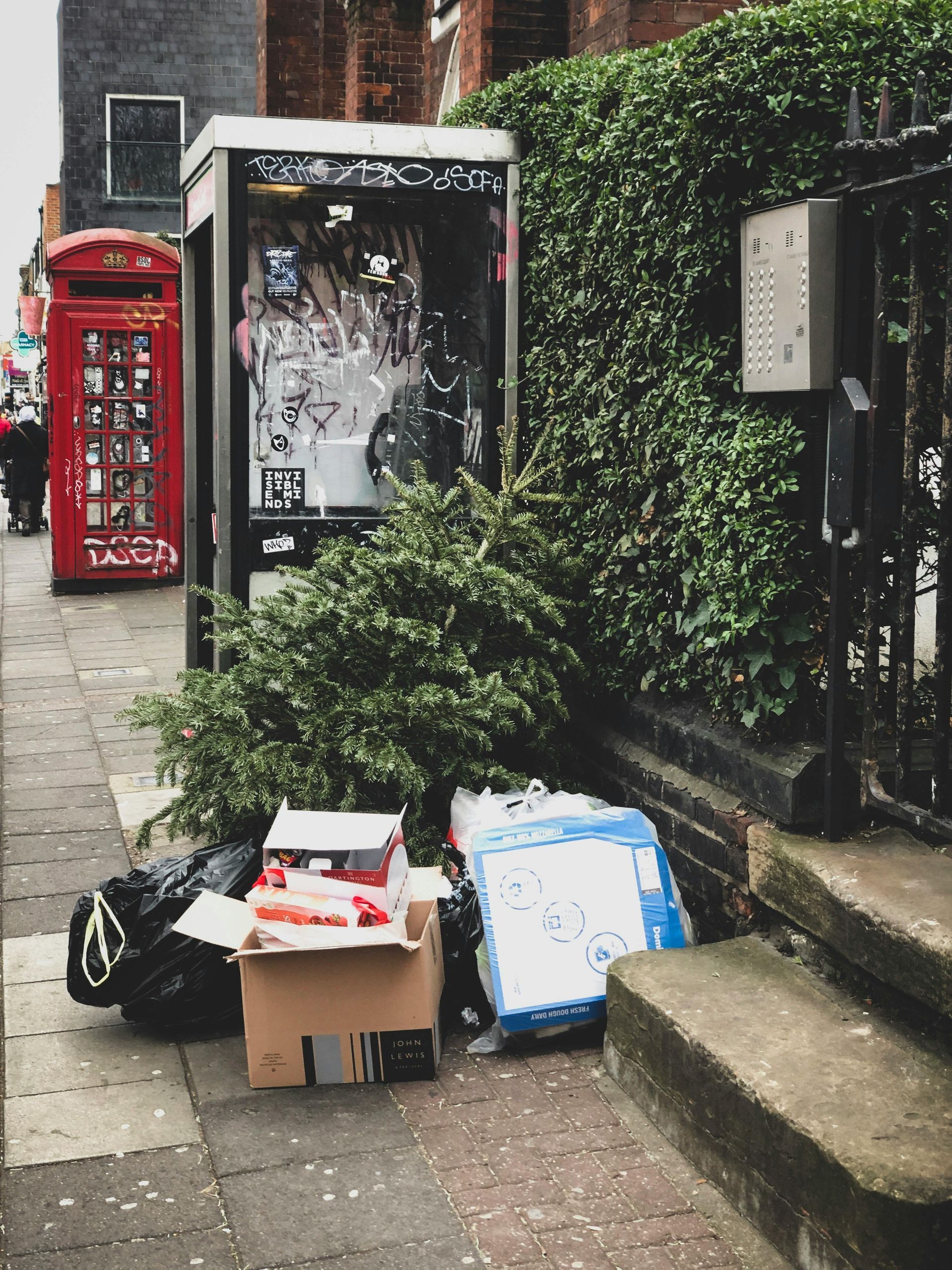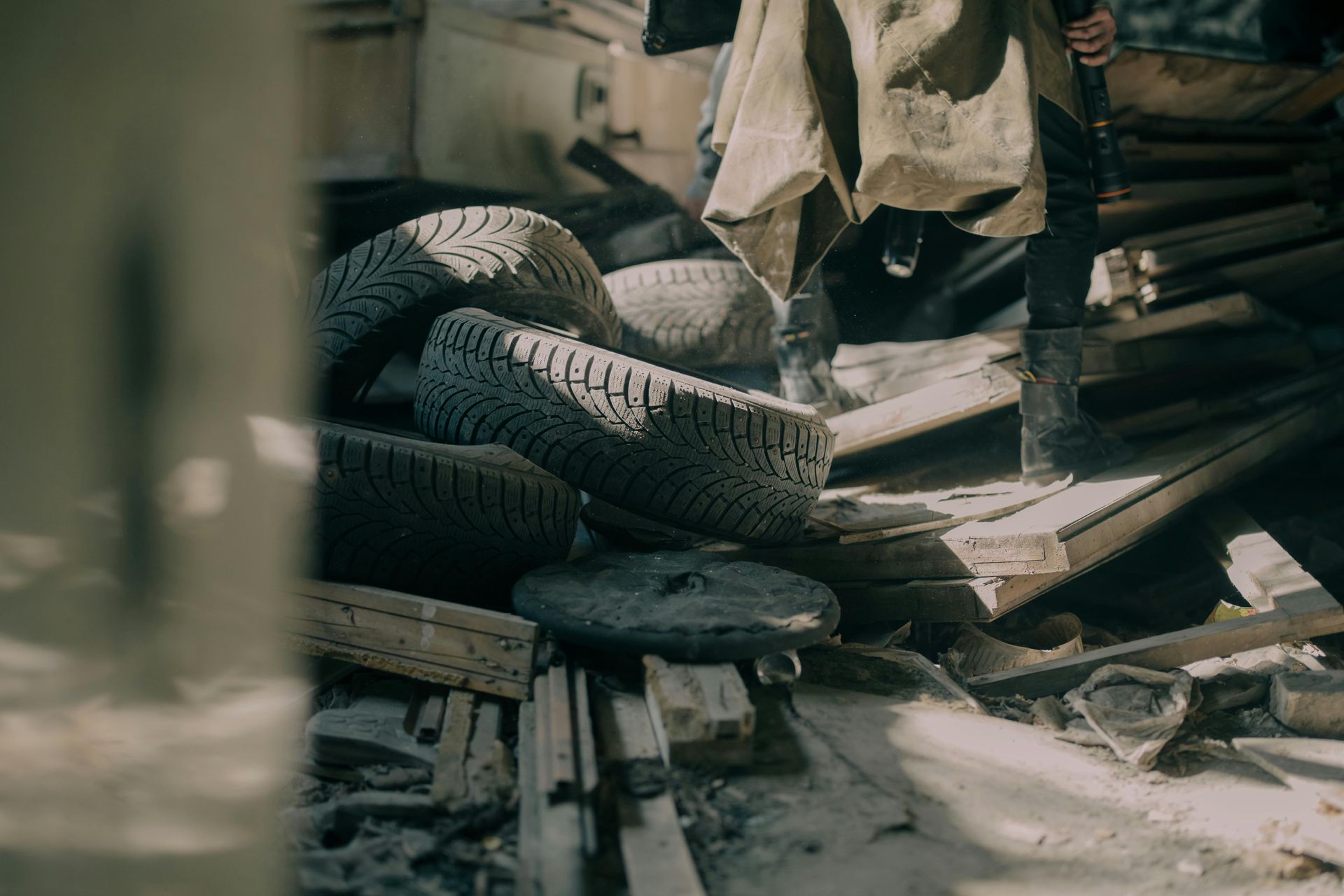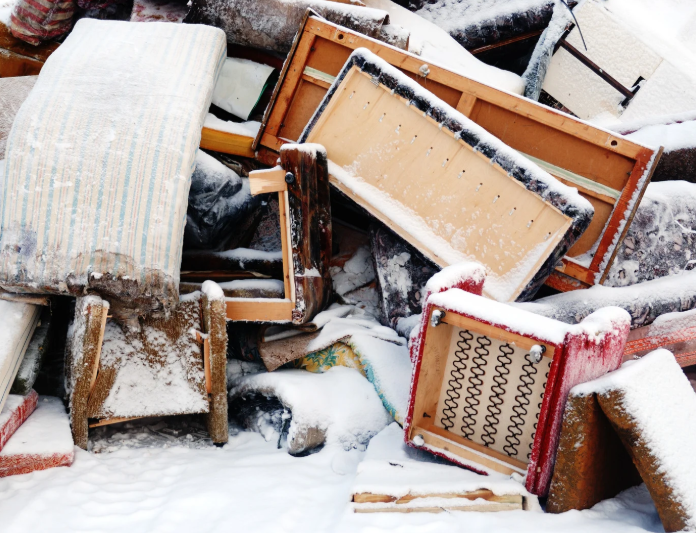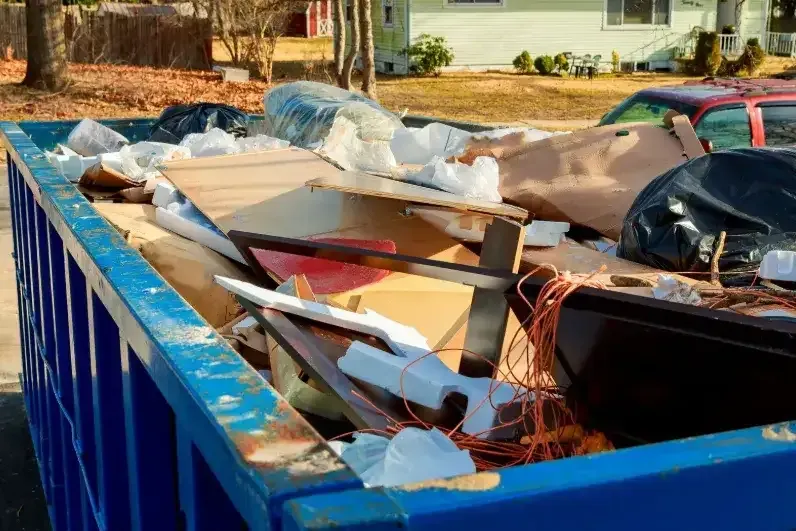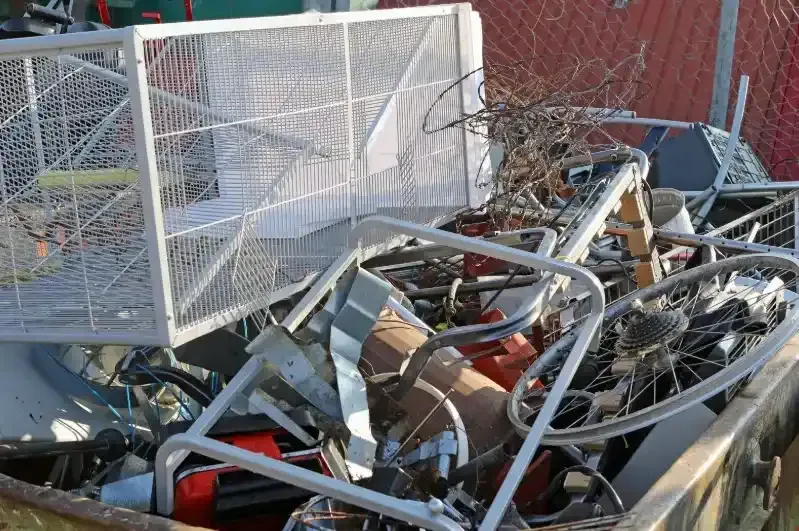How to Properly Dispose of Electronics and Appliances the Green Way
The relentless march of technology means we’re constantly upgrading our gadgets and appliances. From smartphones to refrigerators, we often find ourselves with a collection of old electronics and household appliances that have outlived their usefulness. While it may be tempting to toss these items in the trash, improper disposal can have significant environmental consequences. Many electronics and appliances contain hazardous materials that, when disposed of incorrectly, can harm the environment. So, what’s the green way to dispose of these items?
In this article, we’ll explore how you can responsibly and sustainably dispose of electronics and appliances, making sure they end up where they can be properly recycled or repurposed, not in a landfill. We’ll discuss why it’s crucial to be mindful of how you dispose of these products, outline some effective methods for responsible disposal, and highlight the benefits of making eco-friendly choices.
Understanding the Importance of Proper Disposal
The issue of e-waste (electronic waste) and appliance disposal has reached critical levels. According to the Environmental Protection Agency (EPA), millions of tons of e-waste are generated each year, and a large portion of it ends up in landfills, leaching harmful chemicals like lead, mercury, and cadmium into the ground and water. The impact on human health and the environment is profound and long-lasting. Many of the components in electronics and appliances—such as circuit boards, batteries, and refrigerants—are dangerous if not disposed of correctly.
The first step toward a greener planet is recognizing the urgency of proper disposal. Not only does it protect natural resources, but it also reduces the need to mine for raw materials to create new products. By recycling or repurposing your old electronics and appliances, you’re contributing to a circular economy, where resources are continually reused, rather than extracted and discarded. Now, let's dive into the best ways to properly dispose of your outdated devices and appliances.
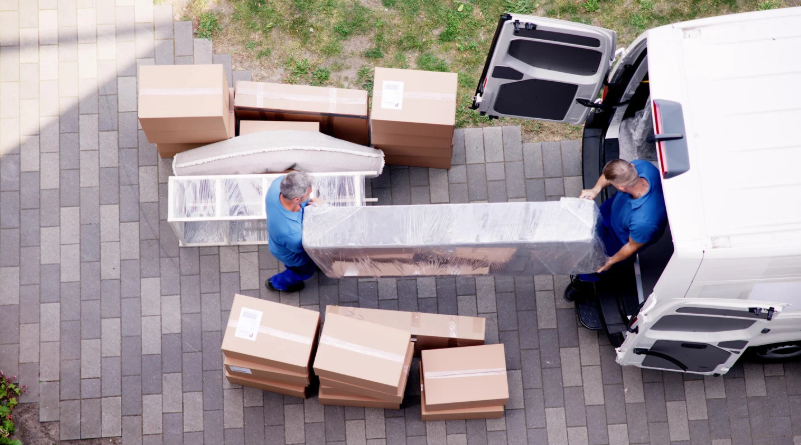
Start by Understanding What Can Be Recycled
Before you even think about disposal, it's crucial to identify which electronics and appliances can be recycled. Generally, any device that operates using electricity or batteries falls under the e-waste category. This includes items like:
- Smartphones, tablets, and laptops
- Televisions and monitors
- Refrigerators, freezers, and air conditioners
- Washing machines, dishwashers, and dryers
- Microwaves, toasters, and other small kitchen appliances
- Vacuum cleaners and power tools
- Batteries (both rechargeable and single-use)
It's also worth noting that many of these items contain valuable materials like copper, aluminum, gold, and silver, all of which can be recovered and reused. Properly recycling them reduces the need for mining and mitigates the environmental impact of manufacturing new items. However, some items may need special attention due to hazardous components, such as refrigerants in old fridges or lead in older electronics.
Find Certified E-Waste Recycling Facilities
If you’ve decided to recycle your electronics, the next step is to find a certified e-waste recycling facility. Many cities and communities have specific locations where you can drop off old electronics for free or at a minimal cost. These facilities are equipped to handle the disassembly and recycling of e-waste in a way that’s safe for the environment. Look for facilities that are certified by organizations like R2 (Responsible Recycling) or e-Stewards, which ensure that your old electronics are being disposed of or recycled properly.
These certifications indicate that the facility meets high standards for environmental responsibility and doesn’t engage in practices like exporting hazardous e-waste to developing countries. Many recycling centers also offer special services for larger appliances like refrigerators or washers, so be sure to ask if they handle such items. When dropping off your items, it’s always a good idea to check if the center charges any fees for processing large appliances or hazardous materials like freon.
Take Advantage of Manufacturer Take-Back Programs
Another great way to dispose of electronics responsibly is through manufacturer take-back programs. Many major electronics and appliance manufacturers have programs in place where they will accept old devices for recycling or refurbishment. Companies like Apple, Dell, Samsung, and Best Buy often offer trade-in or recycling options, sometimes with the added bonus of store credit or discounts for new purchases.
These programs are often very convenient because they allow you to drop off your devices at participating retail locations or mail them in directly to the manufacturer. In some cases, these programs can even handle data wiping for your devices, ensuring that personal information is safely erased before recycling.
Donate Usable Electronics to Charity
If your old electronics are still in working condition, consider donating them to charity. Many organizations, such as Goodwill and the Salvation Army, accept used electronics and appliances that are still functional. By donating items that still have value, you’re helping someone in need while keeping them out of the landfill. Before donating, ensure that the devices are in good working order and that they have been properly cleaned.
In addition, some specialized charities focus on collecting electronics for underprivileged communities, schools, or even developing countries. If you want to make sure your donation goes to the right place, do some research to find organizations that repurpose old electronics for good causes.
Partner with Junk Removal Services that Prioritize Recycling
If you have a significant amount of electronics or appliances to dispose of, partnering with a junk removal service is an excellent option. However, not all junk removal companies are equal when it comes to eco-friendly disposal. Many traditional junk removal services simply take items to the nearest landfill, but there are companies that prioritize recycling and responsible disposal.
When choosing a junk removal service, be sure to ask about their recycling practices and whether they have partnerships with certified e-waste recycling centers. Look for companies that have a clear commitment to reducing their environmental impact by recycling as much as possible.
Consider Refurbishing or Selling Used Items
There’s a common misconception that old electronics or appliances are automatically useless once they’ve been replaced—but that’s far from the truth. Many of these items still have functional life left in them, and with a bit of care, they can be given a second chance. Refurbishing or repairing devices such as laptops, smartphones, microwaves, or washers is a sustainable alternative that keeps them out of the waste stream and in circulation longer. Local repair shops are often happy to breathe new life into older models, especially if parts are still available or if the fix is relatively simple. It’s also often much cheaper to repair than to replace, saving you money while doing something good for the planet.
If you’re not interested in keeping the item after repairs, consider selling it instead. Online platforms like Craigslist, eBay, OfferUp, or Facebook Marketplace make it easy to connect with people actively searching for second-hand electronics or appliances. These transactions give your item a new home and keep it from ending up in a landfill prematurely. Even if your device needs minor work, buyers who are handy may be willing to take it on as a low-cost project. Selling used items is an eco-conscious choice that supports reuse, reduces waste, and promotes a more circular economy.
Be Aware of Local Regulations
Properly disposing of electronics and appliances isn’t just about being environmentally responsible—it’s also about following the law. Across the United States and beyond, local and state governments have implemented specific regulations concerning how different types of e-waste must be handled. These laws are designed to prevent harmful chemicals from entering the environment, and they often restrict people from simply throwing items like televisions, monitors, or refrigerators into the regular trash.
Before discarding your electronics or appliances, take the time to research the local regulations in your area. Your city or county waste management department typically provides up-to-date information on their website regarding what’s accepted at the curb, what must be dropped off at specific facilities, and which items require special processing. Many communities even offer scheduled e-waste recycling events or partner with certified recycling companies that make the process easier.
What About Hazardous Components?
Some electronics and appliances contain hazardous components that require special handling. For example, old refrigerators often contain refrigerants like Freon, which can be harmful to the ozone layer. In these cases, it’s essential to use a certified recycling facility that can safely remove and dispose of these materials.
Additionally, older electronics may contain lead, mercury, or cadmium, which can be toxic if not properly recycled. These materials need to be handled with care and should not be disposed of in standard waste or recycling streams. Always check to ensure that the facility you're using is equipped to handle these substances.
Conclusion
Proper disposal of electronics and appliances is more than a matter of convenience—it’s a critical step toward protecting the environment and reducing the massive footprint of e-waste that continues to grow each year. Items like outdated televisions, broken refrigerators, and unused laptops often contain hazardous materials that, when dumped into landfills, can leach into the soil and water supply, posing a serious threat to ecosystems and human health. Choosing to recycle, donate, or refurbish these items not only reduces environmental harm but also supports a more sustainable, circular economy. Taking the extra step to ensure these products are handled the green way can make a tangible difference in the fight against climate change and pollution.
For those who need help handling larger loads or aren’t sure where to start, Lasso & Load Junk Removal offers a responsible, eco-conscious solution in Gwinnett County. Whether it’s outdated electronics or heavy appliances, their team is committed to disposing of unwanted items in a manner that prioritizes sustainability and environmental care. To arrange for a pickup or learn more about their services, call 404-227-2017 or email Lauren.renwickk@gmail.com.
